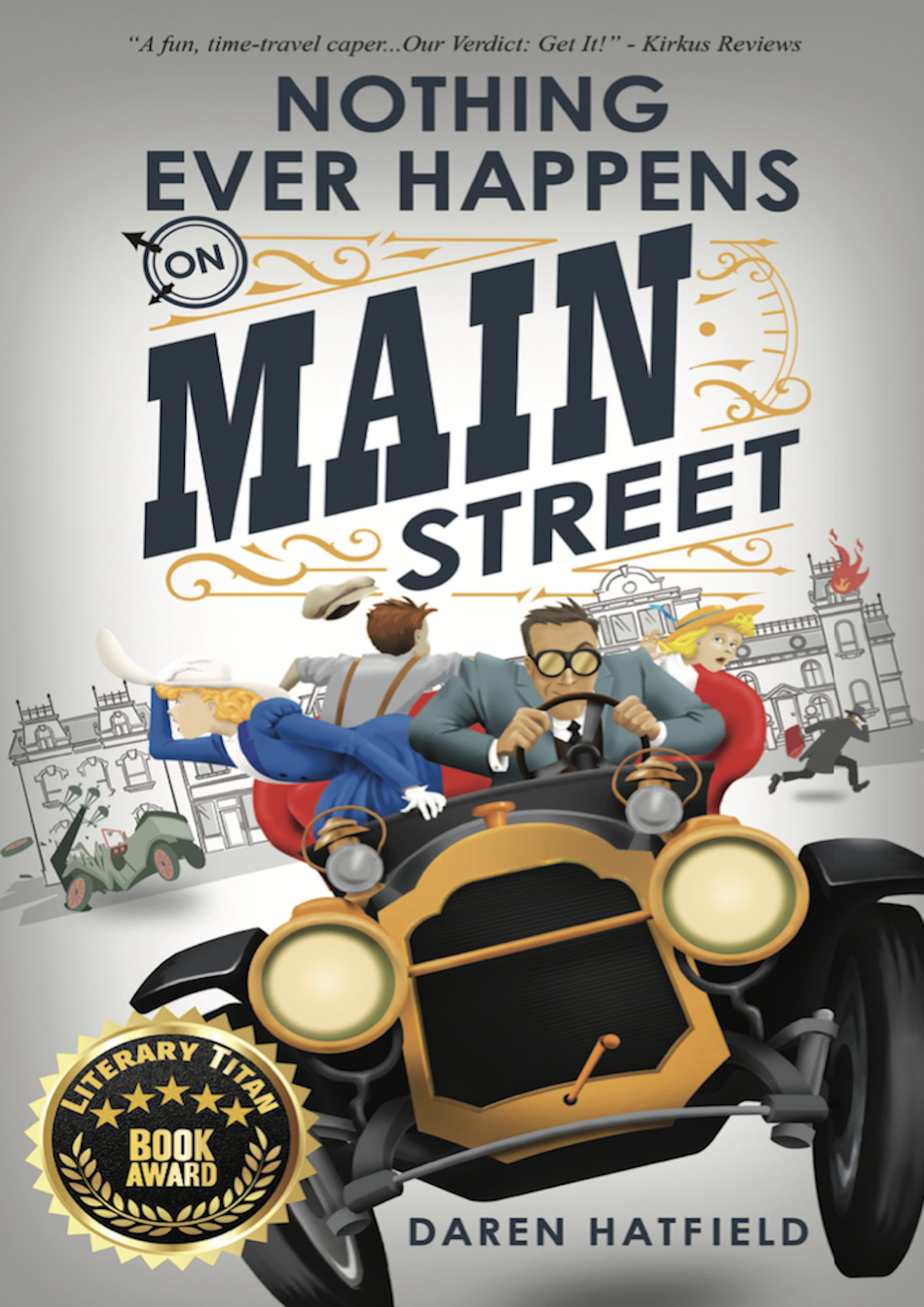NOTHING EVER HAPPENSS ON MAIN STREET
Ever since I was a boy I loved to draw pictures and create cartoons and comics. Later, I came to the realization that my cartoons and illustrations were simply a by-product of the stories I wanted to tell. While art is enjoyable, I find that one can explore things so much more deeply with the written word, and that became my preferred story-telling outlet. Fast forward twenty years or so: I was working in a somewhat arduous office job with hardly any creative output. On the verge of serious depression (and perhaps even a nervous breakdown) I knew I needed to do something, so I forced myself to be seriously dedicated to completing a novel. Now, I think I may be addicted to being an indie writer.
I personally find the time period of the early 1900s very alluring. It’s almost a forgotten era tucked in-between the literary genres of steampunk and dieselpunk. I remember visiting a small town in Colorado on Fourth of July (an area where Nikola Tesla spent part of his life) and it struck me as a fun setting and time-period for a sci-fi story. During that era, life was on the cusp of major modernization and I personally liken it to one’s teenage years – brimming with promise and exploration but without too many shackles of responsibility.
You didn’t tell me you were going to ask such hard questions! Arcs and plot are kind of a chicken and egg situation. Does the character behavior turn the plot? Or do the events shape the character? Like life, it’s a little bit of both, I guess. Each character is dealing with something, so I make sure all of the plot points are lined up, using the other characters as much as possible to assist one another on their journey. Then, if all goes according to plan, the characters are all in sync and able to ‘stick the landing’ by the end of the book. Probably the most important aspect, in my opinion, is that strong arcs really can’t be contrived. I was not able to write Nothing Ever Happens on Main Street unless I personally felt what the characters were feeling. I took the many challenges I was facing in life — such as the stress of responsibility, or wrestling with the grief of loss — and handed them to each of the characters. They were now feeling what I was feeling, and I now had a sincere expectation of what a resolution would feel like.
Being a newcomer to the indie community myself, my own wisdom is still very limited. I will say that the indie community is great and I’ve learned a great deal by either engaging or simply observing, and am continuing to learn! There are no right or wrong ways to do things, no single benchmark for success, and no need to operate in a vacuum (unless you want to.) And, yes, em dashes are awesome. Don’t let anyone convince you, otherwise.


